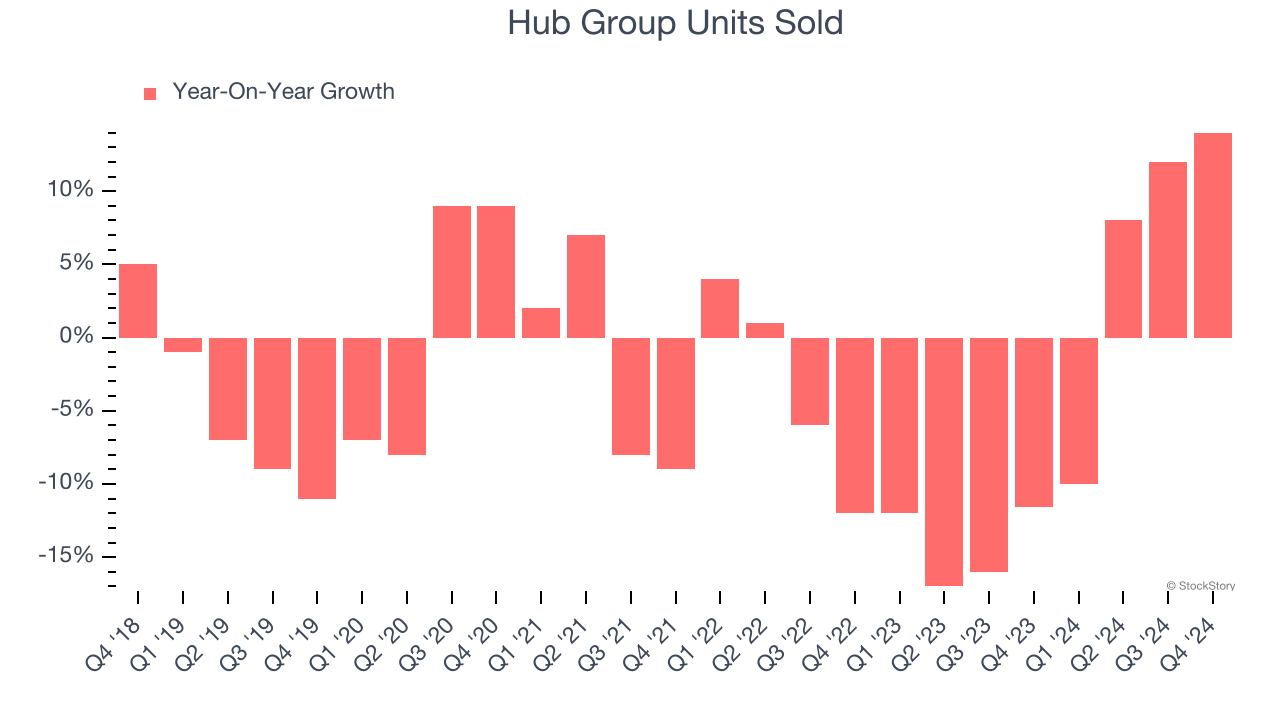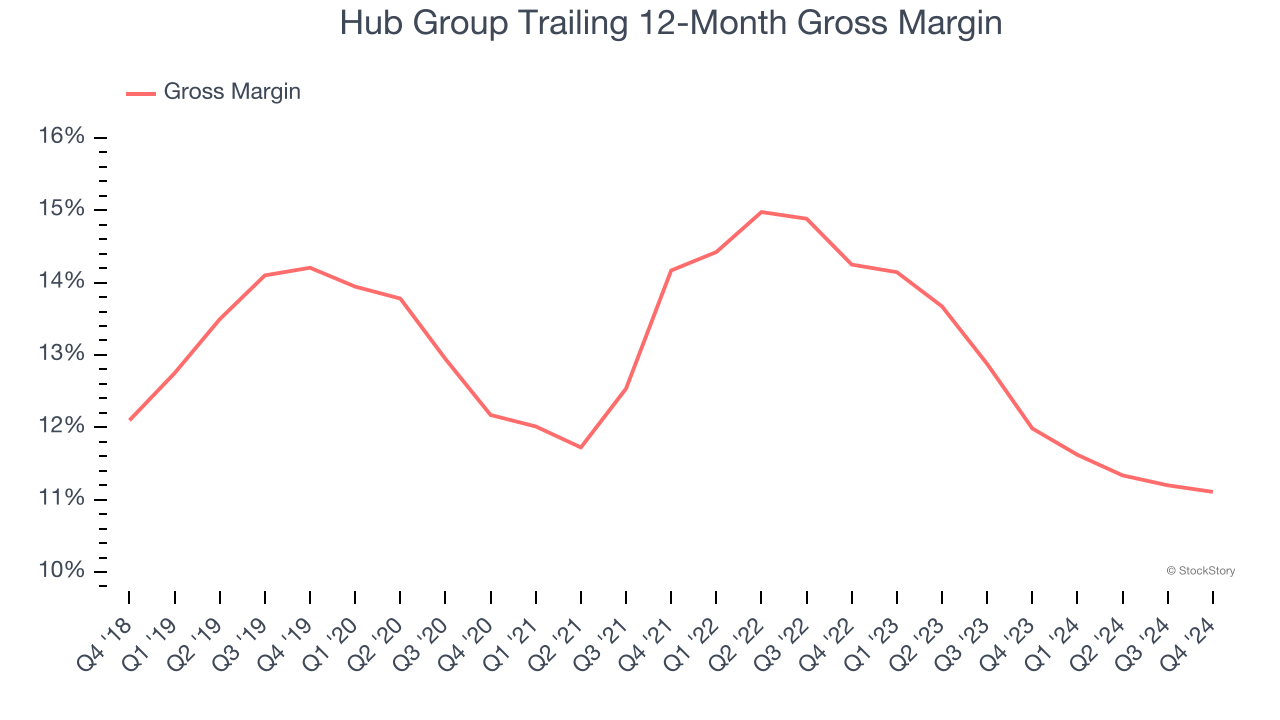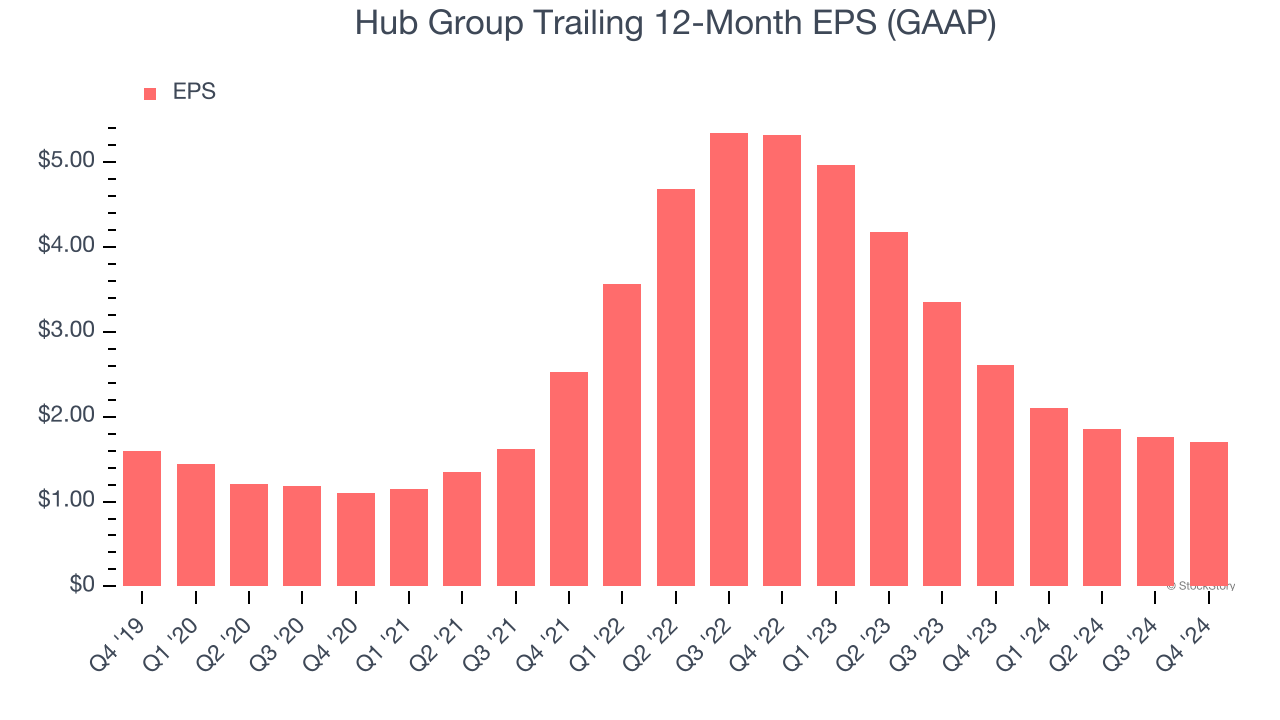
Over the last six months, Hub Group’s shares have sunk to $37.86, producing a disappointing 16.2% loss while the S&P 500 was flat. This was partly due to its softer quarterly results and might have investors contemplating their next move.
Is now the time to buy Hub Group, or should you be careful about including it in your portfolio? Check out our in-depth research report to see what our analysts have to say, it’s free.
Even though the stock has become cheaper, we're sitting this one out for now. Here are three reasons why HUBG doesn't excite us and a stock we'd rather own.
Why Do We Think Hub Group Will Underperform?
Started with $10,000, Hub Group (NASDAQ: HUBG) is a provider of intermodal, truck brokerage, and logistics services, facilitating transportation solutions for businesses worldwide.
1. Demand Slipping as Sales Volumes Decline
Revenue growth can be broken down into changes in price and volume (the number of units sold). While both are important, volume is the lifeblood of a successful Air Freight and Logistics company because there’s a ceiling to what customers will pay.
Over the last two years, Hub Group’s units sold averaged 4.1% year-on-year declines. This performance was underwhelming and implies there may be increasing competition or market saturation. It also suggests Hub Group might have to lower prices or invest in product improvements to grow, factors that can hinder near-term profitability. 
2. Low Gross Margin Reveals Weak Structural Profitability
For industrials businesses, cost of sales is usually comprised of the direct labor, raw materials, and supplies needed to offer a product or service. These costs can be impacted by inflation and supply chain dynamics in the short term and a company’s purchasing power and scale over the long term.
Hub Group has bad unit economics for an industrials business, signaling it operates in a competitive market. As you can see below, it averaged a 12.9% gross margin over the last five years. Said differently, Hub Group had to pay a chunky $87.14 to its suppliers for every $100 in revenue. 
3. EPS Barely Growing
We track the long-term change in earnings per share (EPS) because it highlights whether a company’s growth is profitable.
Hub Group’s weak 1.2% annual EPS growth over the last five years aligns with its revenue performance. This tells us it maintained its per-share profitability as it expanded.

Final Judgment
Hub Group doesn’t pass our quality test. After the recent drawdown, the stock trades at 16.4× forward price-to-earnings (or $37.86 per share). This valuation multiple is fair, but we don’t have much confidence in the company. There are better stocks to buy right now. We’d suggest looking at our favorite semiconductor picks and shovels play.
Stocks We Would Buy Instead of Hub Group
The Trump trade may have passed, but rates are still dropping and inflation is still cooling. Opportunities are ripe for those ready to act - and we’re here to help you pick them.
Get started by checking out our Top 6 Stocks for this week. This is a curated list of our High Quality stocks that have generated a market-beating return of 175% over the last five years.
Stocks that made our list in 2019 include now familiar names such as Nvidia (+2,183% between December 2019 and December 2024) as well as under-the-radar businesses like Comfort Systems (+751% five-year return). Find your next big winner with StockStory today for free.






